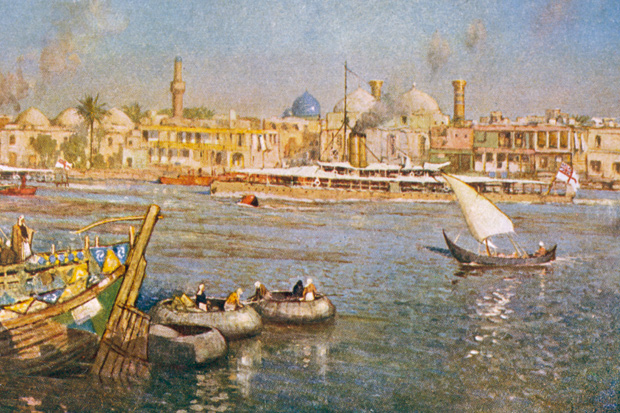The history of Baghdad more than any other city mirrors the ebb and flow that has marked Islamic history and civilisation. The rise and fall of empires and dynasties, the splendours of Islam’s high culture and its decline, the periodic tensions and ease that affected relations between nations and peoples, sects and faiths have all been played out in the teeming neighbourhoods, palace precincts, market areas, great mosques, educational centres and military compounds of this remarkable city.
Unlike its rival Damascus, the capital of the first Muslim empire, the Umayyads, which had been established for centuries before the arrival of Islam into Syria, Baghdad was pre-eminently a city of the Islamic era. It was founded specifically to be the capital of a universal empire, smack in the middle of trade routes that converged on it from all points of the azimuth.
It was the genius of the caliph al-Mansur, brother of the first Abbasid caliph, Abul Abbas, ‘the Slayer’, the scourge of the Umayyads, who conceived of the idea of a new capital and selected the site. Separated by hundreds of miles of desert from the lands of Syria and Arabia, it stood in the middle of the fertile plains of Mesopotamia. Lying on the Tigris river, Baghdad faced east towards the Iranian plateau and central Asia. The Tigris and nearby Euphrates linked it north with upper Syria and Asia Minor and south with the Gulf of Basra and further to India and the Orient. Al-Mansur also chose the design — it was to be ‘the round city’, a geometrically perfect circle, protected by giant walls pierced by equidistant gates, from which ceremonial avenues led to the centre. The scheme was monumental in scope.
On 30 July 762, al-Mansur laid the first brick. Tens of thousands of labourers toiled on the site, excavating foundations for the public buildings around which the city was to evolve, and within a mere four years all was ready.







Comments
Join the debate for just £1 a month
Be part of the conversation with other Spectator readers by getting your first three months for £3.
UNLOCK ACCESS Just £1 a monthAlready a subscriber? Log in